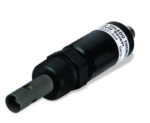Formal methods offer completeness in proving functionality but are difficult to scale to system level without abstraction and cannot easily incorporate system aspects outside the logic world such as in cyber-physical systems (CPS). Paul Cunningham (Senior VP/GM, Verification at Cadence), Raúl Camposano (Silicon Catalyst,… Read More
Author: Bernard Murphy
Synopsys.ai Ups the AI Ante with Copilot
Last week Synopsys announced their next step in generative AI (GenAI) in Synopsys.ai Copilot based on a collaboration with Microsoft. This integrates Azure OpenAI together with existing Synopsys.ai GenAI capabilities to extend Copilot concepts to the EDA world. For those of you unfamiliar with Copilot, this is a development… Read More
Cadence Integrates Power Integrity Analysis and Fix into Design
As integration levels increase, clock frequencies rise, and feature sizes shrink it is not surprising that all or most aspects of semiconductor design become more complex and demand more from design technologies. One example where the traditional approach is breaking down is in optimizing power distribution networks (PDNs)… Read More
Accelerating Development for Audio and Vision AI Pipelines
I wrote previously that the debate over which CPU rules the world (Arm versus RISC-V) somewhat misses the forest for the trees in modern systems. This is nowhere more obvious that in intelligent audio and vision: smart doorbells, speakers, voice activated remotes, intelligent earbuds, automotive collision avoidance, self-parking,… Read More
Synopsys Debuts RISC-V IP Product Families
Synopsys has just announced that it has expanded its ARC processor portfolio to include a family of RISC-V processors. These will be branded under the ARC name as ARC-V and are expected to become available in 2024. This is a significant announcement which I attempt to unpack briefly below.
Why add RISC-V to the portfolio and why now?
… Read MoreA Fast Path to Better ARC PPA through Fusion Quickstart Implementation Kits and DSO.AI
Synopsys recently presented a webinar on using their own software to optimize one of their own IPs (an ARC HS68 processor) for both performance and power through what looks like a straightforward flow from initial configuration through first level optimization to more comprehensive AI-driven PPA optimization. Also of note … Read More
Arm Total Design Hints at Accelerating Multi-Die Activity
I confess I am reading tea leaves in this blog, but why not? Arm recently announced Arm Total Design, an expansion of their Compute Subsystems (CSS) offering which made me wonder about the motivation behind this direction. They have a lot of blue-chip partners lined up for this program yet only a general pointer to multi-die systems… Read More
DVCon Europe is Coming Soon. Sign Up Now
I’m a fan of DVCon, a fan of Accellera and a fan of Munich, hosting DVCon Europe once again. This year’s event runs from November 14th through 15th (with some events on the 16th) at the Holiday Inn Munich in the City Center. Phillippe Notton (CEO, SiPearl) will deliver a keynote on “Energy Efficient High-Performance Computing in the… Read More
Developing Effective Mixed Signal Models. Innovation in Verification
Mixed-signal modeling is becoming more important as interaction between digital and analog circuitry become more closely intertwined. This level of modeling depends critically on sufficiently accurate yet fast behavioral models for analog components. Paul Cunningham (Senior VP/GM, Verification at Cadence), Raúl Camposano… Read More
A New Ultra-Stable Resistivity Monitor for Ultra-Pure Water
I am straying from my normal range of topics here, but confess I am developing an interest in semiconductor metrology since it takes me back to my physics and math roots. Even better I get to learn about the state of the art in ultra-pure water for semiconductor applications, an area where resistivity monitors play a role since resistivity… Read More



















TSMC vs Intel Foundry vs Samsung Foundry 2026